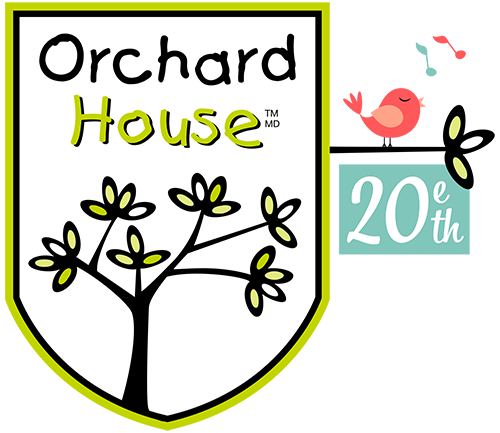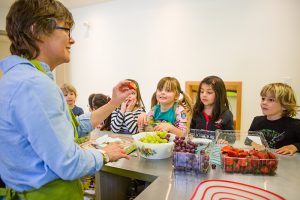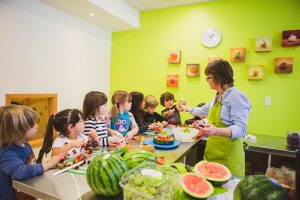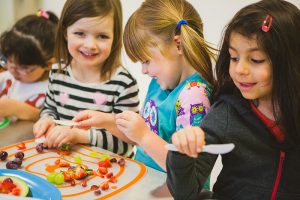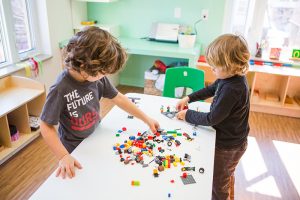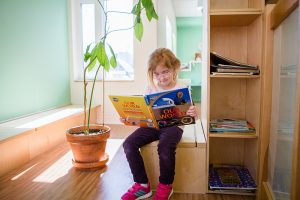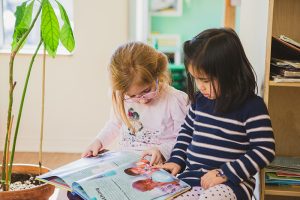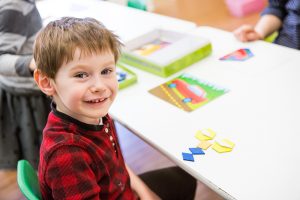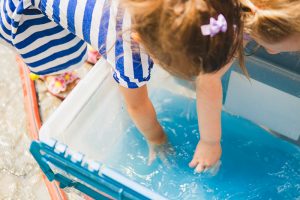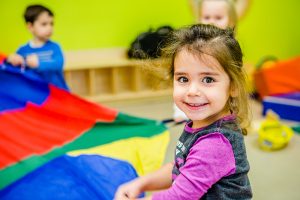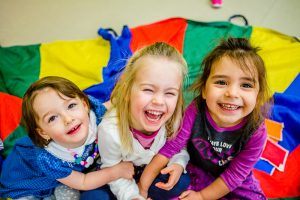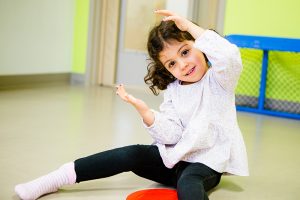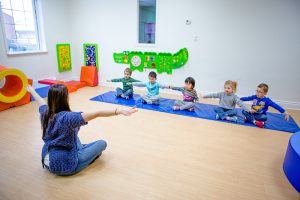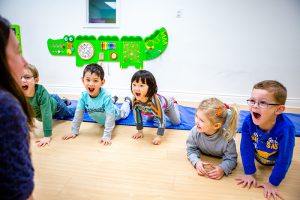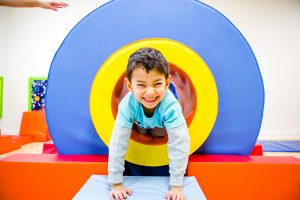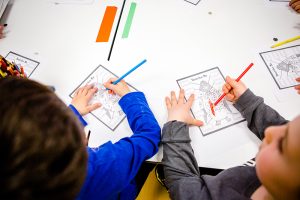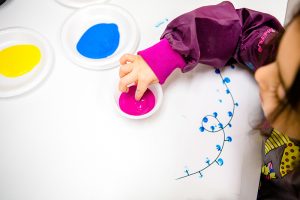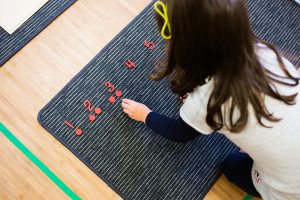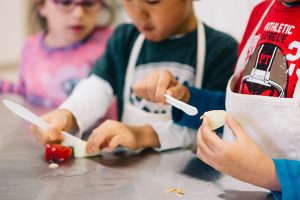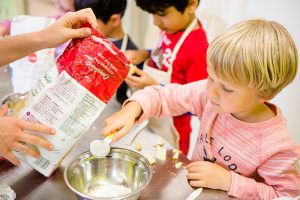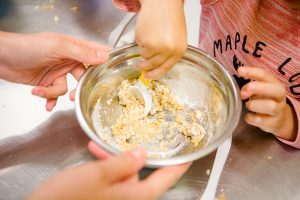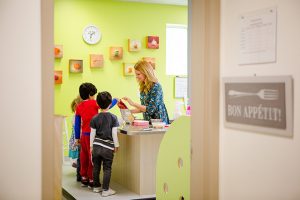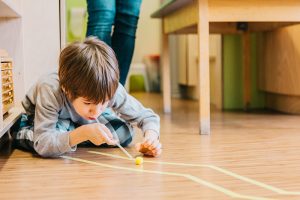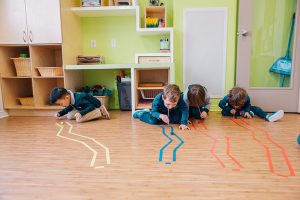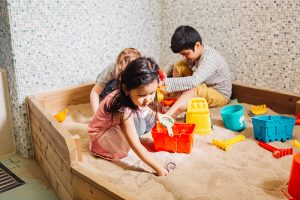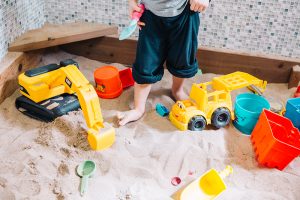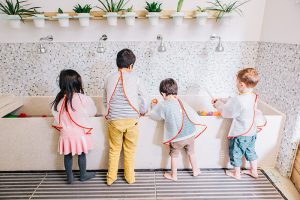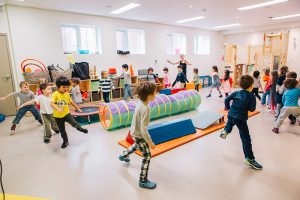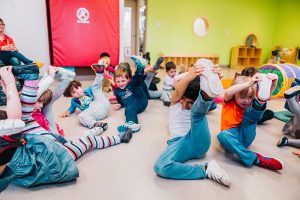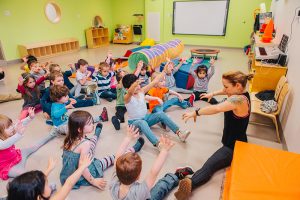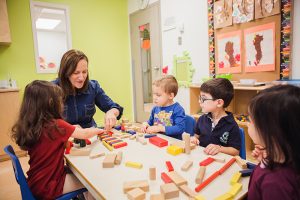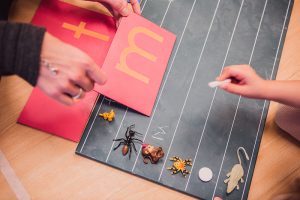Our enriched afternoon program complements the goals of our morning program by providing a variety of co-curricular activities for the children to enjoy. These activities are directly linked to your child’s learning in the Montessori classroom, and allow all of those skills that have been previously introduced in isolation to be implemented and practiced in an authentic and social setting. It is in these afternoon activities that the children learn to pace themselves according to a group rhythm.
Our afternoon program offers a wide and alternating variety of activities that will allow your child to explore new skills and find new passions. The array of activities – offered by specialists both visiting and in-house – focuses on the development of the whole child, with a focus on igniting a sense of balance, perspective, wonder, discovery and imagination.
Click below to discover just some of the learning experiences your child will engage in.
Mind
Bookworm
Each week, the children are introduced to a new, stimulating picture book. The discussions that ensue encourage the children to activate prior knowledge, to make connections and predictions, to visualise and summarise. These important reading comprehension strategies will deepen critical thinking skills and enrich the children’s response to literature.
Book Club
Our literary buffs continue to build on the foundational skills acquired through the exercise of reading comprehension. In this class, the children explore different book genres and are introduced to a variety of well-known authors. In the process, they learn about the main components of a story, they play with and sound out words, they dictate or write their own stories and create accompanying illustrations.
Game Masters
In this class, the children are introduced to the age-old notion of board games, which benefit both social and cognitive development. The variety of board games on hand encourage healthy brain development and executive functioning skills which include planning, organizing and making decisions. Here, the children are guided to detect patterns, exercise critical thinking skills, predict opponents’ moves and strategize planning next steps. Our players are encouraged to cooperate, to collaborate, follow games with rules, and learn how to lose gracefully!
Animal Kingdom
Calling all animal lovers! This class introduces the children to all sorts of creatures, from those we find in our backyard to those who live around the world. The children learn all about animal traits and habitats, offsprings and life cycles. Just hop aboard and set off onto this adventurous journey… your children are sure to go wild over this Animal Kingdom theme!
Exploring Ecosystems
Young children are fascinated by the wonders of nature. As our adventurous travellers explore our planet’s ecosystems, they observe and learn about bugs, reptiles and amphibians found in their natural habitats. Examples of topics include the forest, the rainforest, the desert and the ocean. Get your passports ready for an epic exploration around the globe!
Mini Scientists
Through hands-on experiments and observations, children learn the first steps of the scientific process, hypothesising and observing natural phenomena around them. Fun themes include magnets, sinking and floating, and simple chemical reactions. The use of our in-house 3-D printer, as well as the educational Light Table, with complementary products such as the Human X-Ray sheets and other translucent materials, are an added bonus!
Earth Inquiry
Curious young minds learn to implement the scientific process through hands-on experiments and observations. They learn to ask a question, construct a hypothesis, conduct an experiment, draw conclusions and record their results. This Earth Inquiry explores the human body, properties of matter, the sky, the Earth and the weather.
Lego Club
Creativity, critical thinking, problem-solving and motor development are just a few areas that children benefit from when joining the Lego Club program. Since its creation in 1940, Lego has become one of the most popular educational construction toys to this day. Each week, children embark on a new challenge, from creating skyscrapers to building their very own working cranes.
Little Builders
Construction play has multiple educational benefits that touch on fine motor development, problem solving skills, planning, collaboration and cooperation. Here, our little builders are invited to engage in child-directed, open-ended play scenarios that make use of a variety of material including straws & jacks, Legos, wooden blocks, magnetic tiles, and Orchard House’s very own giant Imagination Playground blocks.
Budding Architects
In this class, our budding architects have the opportunity to design, plan and create structures and buildings, houses and cities. With topics that include construction vehicles, famous landmarks and tools, the children and their classmates create original innovations using a variety of building materials on hand. In this collaborative process, they exercise spatial awareness and spatial reasoning, and experiment with their understanding of measurement and geometry.
Tinker Lab
Sparking moments of wonder and discovery, tinker play revolves around figuring out how things work, how to put things together, and how to take things apart. The Tinker Lab is the perfect setting for playful exploration, inviting curious young minds to experiment with new tools and new materials, and to consider using specific items in a variety of different ways. This example of “maker education” is closely associated with STEM project-based learning which relies on hands-on, collaborative learning experiences as a method for solving authentic problems.
Maker Space
The “maker education” movement is an approach to teaching and learning that is focused on child-centered inquiry. In this Maker Space, our young engineers work collaboratively to design things that solve problems. Taking into consideration constraints such as materials and time, they nurture their vivid imagination and set out to create and test prototypes. Examples of topics include exploring bridges and tunnels, rocket ships and helicopters, subways and trucks.
Pre-Programmers
Growing up in a digital world, coding has become an important skill to learn. Preschool coding activities don’t need to involve a screen, and coding concepts in this Pre-Programmers’ class are explored through board games, grids and maps. Through such activities, our aspiring coders strengthen their number sense, exercise their understanding of directionality, learn to follow multi-step directions and explore the inter-dependent concepts of movement and location.
Kinder Coding
Learning to code sounds serious but, with Osmo’s Awbie, it’s all fun and games. Our kinder-coders begin with special board games to learn coding fundamentals, computational thinking and problem solving, before moving on to Osmo’s Awbie. There, they learn how to place physical blocks into sequences, loops and if/or actions, so on-screen Awbie can walk around, jump over obstacles and grab strawberries in a magical world!
PM Class
As your young preschooler begins to assert control of both self and environment, structured opportunities are provided within the framework of a stimulating Montessori setting, which encourage your child to show initiative and inquisitive exploration. In this class, your child increases social interactions with friends, learns to positively relate to others and begins to develop more complex forms of play and teamwork. As the necessary skills for success in Kindergarten develop, a genuine sense of pride in abilities and accomplishments will pursue.
